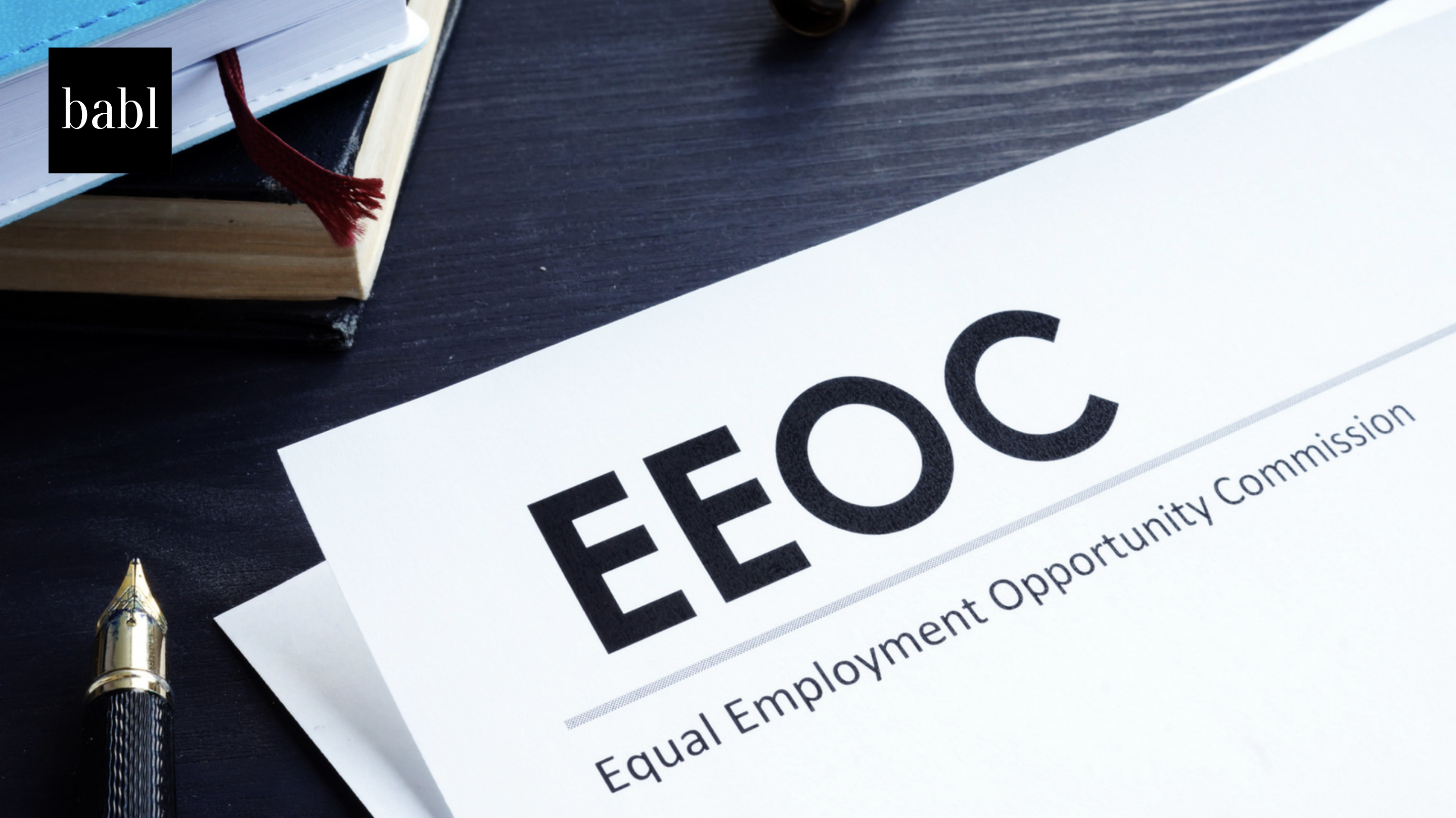UPDATE – JANUARY 2026:
This blog outlines the EEOC’s efforts to address AI-related discrimination in employment decisions. Since publication, the EEOC expanded its 2024–2028 Strategic Enforcement Plan to emphasize bias in hiring, automated screening, and risks. BABL AI provides compliance audits and risk assessments aligned with EEOC guidance for employers using AI in hiring, pay practices, and workforce decision-making.
ORIGINAL BLOG POST:
How is the EEOC Handling AI?
While new laws are being discussed, several governments around the world are looking at how existing legislation and governing bodies can regulate AI.
In the United States, the Equal Employment Opportunity Commission (EEOC) has spent the past several years doing that exact thing. While examining how previous legislations apply, the EEOC has offered up new initiatives, while also handling several discrimination lawsuits.
EEOC Settles First AI-Related Discrimination Lawsuit
Just this year in August, the EEOC settled its first-ever discrimination lawsuit. The lawsuit targeted iTutorGroup, a China-based online English tutoring service. Hence, the company was found to have used application software that automatically rejected female applicants aged 55+ and male applicants aged 60+, resulting in widespread age discrimination.
The EEOC ordered iTutorGroup to pay $365,000 to affected applicants. Although the company has ceased hiring in the U.S., any future operations would require compliance measures including policy changes, employee training, and monitoring.
The case also reinforces a broader point: U.S. anti-discrimination laws apply to remote workers and foreign-controlled hiring systems, especially when decisions are automated.
Strategic Plan Targets AI in Hiring, Screening, and Pay
The EEOC’s current focus is outlined in its Strategic Enforcement Plan for Fiscal Years 2024-2028. The plan identifies AI and machine learning as growing areas of concern—particularly in:
- Job advertising
- Candidate screening
- Background checks
- Salary-setting practices
The EEOC’s priorities include:
- Preventing algorithmic bias in pre-employment tools
- Identifying adverse impact risks in automated systems
- Addressing pay discrimination, such as secret salary policies or reliance on salary history
While AI is a central issue, the plan also reaffirms longstanding EEOC priorities: advancing equal pay, expanding legal access, and eliminating systemic discrimination.
Building on the AI and Algorithmic Fairness Initiative
These recent efforts build on the Artificial Intelligence and Algorithmic Fairness Initiative, which was launched back in 2021. The Initiative was created to ensure that AI and other emergency technology tools implemented in hiring and other employment decisions were complying with civil rights laws that the EEOC enforces.
The initiative also planned to establish an internal work group to help guide the EEOC’s initiative, launch a series of listening sessions, gather information about AI and other employment technologies, identify promising practices and issue technical assistance.
Need Help?
Also, as AI tools become more common in recruiting and HR workflows, employers must ensure compliance with federal anti-discrimination laws. Therefore, BABL AI provides risk assessments, governance support, and audit-readiness services aligned with EEOC expectations. Contact us to schedule a consultation with one of our AI audit experts.





